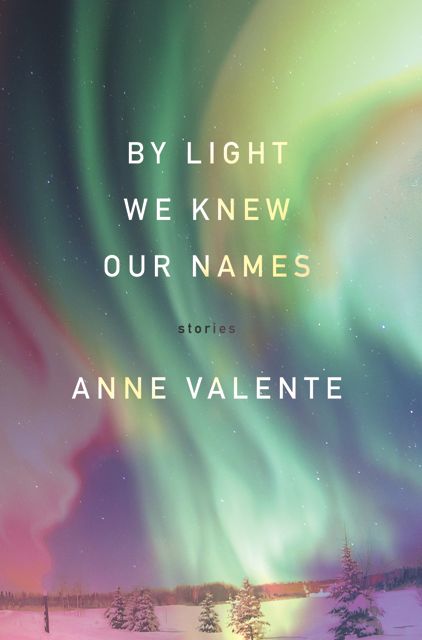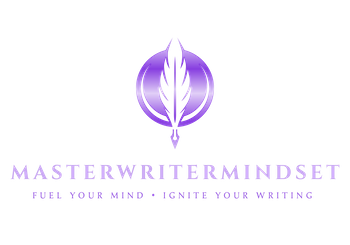One of the biggest physical challenges for me is the amount of
sedentary time that writing requires.
Outside of writing I’m a fairly active person, so it often makes me feel restless to sit in a chair for hours on end.
I tend to balance this out with some form of physical activity each day, usually running and sometimes cycling. I definitely value the quiet time of being able to sit in front of the computer for several hours, but I find that I draw my inspiration from being active and outdoors.
Lots of Writing = Dry Eyes
My routine usually involves writing for several hours early in the morning, then running or exercising directly afterward so that I know some form of activity is on the horizon. This also gives me a set number of hours—a daily deadline, in some ways—to get my writing done and organize my time.
I’ve also recently experienced dry eyes for the first time, after working intensively on a novel for a year. For this reason, I rarely write with my contacts in and have learned to be vigilant with eye drops.
Dealing with Rejection as Part of the Writing Life
Rejection used to bother me much more than it does now, something that I’ve grown accustomed to as part of the process of writing. But I’m not impervious to the ups and downs of writing, the cycles of acceptances followed by months of rejection, and this can grow a little draining as a preoccupation away from the day-to-day work of getting writing done.
I’ve tried to do my best to block out the noise, so to speak, as best as I can—to view acceptance and rejection as a part of the writing life, but not necessarily a part of the reason why I chose to write in the first place. I try to stay focused on that internal hum of curiosity, and of learning more about the world through the written word.
I tend to center myself with green tea, with reading—how other writers focus in on their own sense of the written word and their place in the world—and with exercise. I also find that getting lost in something larger than myself always reminds me of the reasons why I write, and sparks my sense of curiosity and my imagination.
I’m taking astronomy classes this month, thanks to an excellent gift from my sister, which is a perfect way of seeing beyond myself. I also find that hiking and getting out in nature create space for feeling centered.
When I Considered Giving Up on Writing
Right before my first collection of short stories was accepted for publication, I’d honestly considered giving up on writing—or at least on making writing a primary career choice. I’d gone through two fairly intense years of rejection, in terms of sending out the collection and other stories, and in terms of applying for graduate programs in creative writing.
By May of the following, third year, I was contemplating what else I could do with my life when I received the phone call about the publication of the collection. I don’t know what other choice I might have made, or where my writing would have gone from there, though I like to think I still wouldn’t have given up.
The One Thing That Has Kept You On Your Path
Despite coming so close to giving up at one point, I can’t imagine any other path for me. I love writing and what it means for my own sense of curiosity, and how it allows me to access the world.
I’ve also been extremely fortunate to have an incredible support system around me—my family, my partner and my friends have all been amazing champions for me along my path.
Advice for a Young Writer: The Hardest Part is Self-Motivation
I think rejection is hard, most certainly, but I honestly think the hardest part of writing is self-motivation. You can deal with the former if you have the latter.
When I first began writing, I don’t think I could have anticipated just how difficult it would be to learn how to push myself, to set my writing habits, to organize my time and make sure that the writing gets done. It’s easy to place it at the bottom of a to-do list, after jobs and chores and caring for others and anything else that requires tangible outcomes.
Writing is so intangible, and so lacking in immediate results—for a writer or anyone in a writer’s life. But I think recognizing its importance is tremendously empowering, and can serve as a mainstay against the ups and downs of rejection.
I think the hardest part of writing for me was to admit to myself how important it was to me, and to honor it by motivating myself to make time for it every day.
* * *
Anne Valente is the author of the short story collection, By Light We Knew Our Names, and the fiction chapbook, An Elegy for Mathematics. Her fiction appears or is forthcoming in One Story, Ninth Letter, Hayden’s Ferry Review and The Normal School, among others, and her essays appear in The Believer and The Washington Post.
For more information about Anne and her writings, please see her website, or follow her on Twitter or Goodreads.
 By Light We Knew Our Names: From ghosts to pink dolphins to a fight club of young women who practice beneath the Alaskan aurora borealis, By Light We Knew Our Names examines the beauty and heartbreak of the world we live in.
By Light We Knew Our Names: From ghosts to pink dolphins to a fight club of young women who practice beneath the Alaskan aurora borealis, By Light We Knew Our Names examines the beauty and heartbreak of the world we live in.
Across thirteen stories, this collection explores the thin border between magic and grief.
Available at Amazon, Dzanc Books, and IndieBound.


“But I think recognizing its importance is tremendously empowering”
Well said. We often tell people that we write because, well, we want to or think we need to do so. But I like the concept of empowerment. The writer makes the decisions. The writer puts the soul into the words. The writer becomes the words. Now that’s empowerment! Nice article, everyone.
Thanks for your thoughts, DJ. Yes, not always easy for writers to feel empowered. Good point!
Thank you for your kind words, everyone! Best of luck to you as well with your writing.
Another excellent guest post! Anne, I love how you got an acceptance on your short stories right when you needed it to continue. I can’t even count the number of times I’ve had similar positive feedback in some form throughout my life, to give me the encouragement to move forward with my writing.
Thank you for this, Anne and Colleen. I’m an older person who published my first book in Oct. 2014. So, both old and new.
I’ve had to learn so much and the lessons are similar. Dealing with rejections and moving forward anyway, fighting the sedentary issue (extra difficult in the frigid northeast this winter), discipline, lack of balance between writing and making healthy food for myself, and leaving space for new ideas in a world of intense promotion after finally finding a publisher. Have to trust that if I keep writing, the Muse will appear.
Thank you, Elaine. Seems we all have these challenges to overcome, and with experience only comes new ones. Good luck managing all that snow! At least the shoveling is a good workout, eh? :L)
I love reading about other young writers and aspiring writers. It gives me hope that one day, I can make writing my career too.
“Writing is so intangible, and so lacking in immediate results”
That quiet fact of writing is something I struggle with often. I’ve been making big strides in my creative nonfiction writing and I’m excited to see where this new direction takes me BUT sometimes I fight against feeling like I’ve accomplished nothing all day because, well, it is so intangible.
I’m blessed with a partner that’s very creative and artist and who understands that often creating something means it looks like you didn’t do a gosh darn thing for days and weeks until, poof!, it’s done. He’s been a great encourager for me when I get stuck feeling like I need to be able to ‘show’ something each day.
Thanks for sharing your journey, Anne.